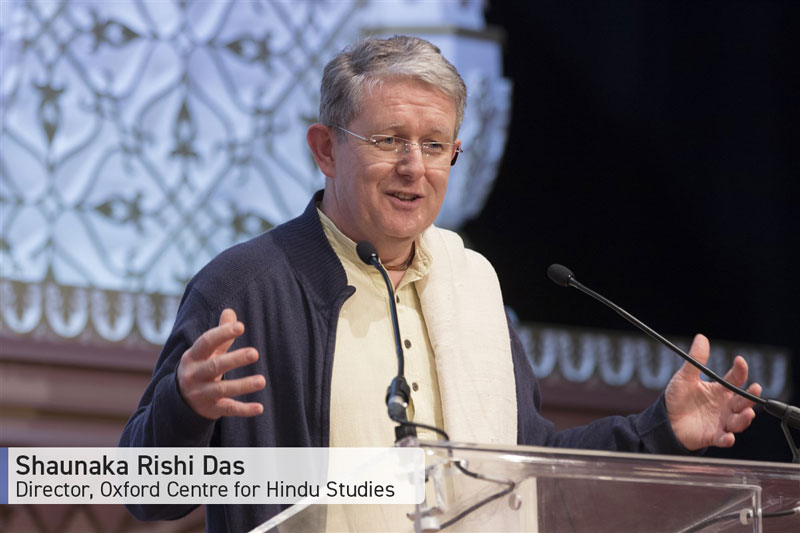Topics:
- Varna-ashram system (the four castes and four life stages)
- Vedic conception of work and distribution of wealth
Additional topics:
- Becker’s “The Denial of Death” and it’s parallels to the teachings of Gita
- Agha, the terrible demon
Stream
Subscribe
[iTunes] [Stitcher] [Hipcast] [Spotify]Mentioned in this podcast
Abbreviations used in these notes: BG for Bhagavad Gita
Books
- Bhagavad Gita As It Is
- Denial of Death by Ernest Becker
Verses
cātur-varṇyaṁ mayā sṛṣṭaṁ
guṇa-karma-vibhāgaśaḥ
tasya kartāram api māṁ
viddhy akartāram avyayam
cātuḥ-varṇyam — the four divisions of human society; mayā — by Me; sṛṣṭam — created; guṇa — of quality; karma — and work; vibhāgaśaḥ — in terms of division; tasya — of that; kartāram — the father; api — although; mām — Me; viddhi — you may know; akartāram — as the nondoer; avyayam — unchangeable.
According to the three modes of material nature and the work associated with them, the four divisions of human society are created by Me. And although I am the creator of this system, you should know that I am yet the nondoer, being unchangeable.
There is no work that affects Me; nor do I aspire for the fruits of action. One who understands this truth about Me also does not become entangled in the fruitive reactions of work.
All the liberated souls in ancient times acted with this understanding of My transcendental nature. Therefore you should perform your duty, following in their footsteps.
Vocabulary
- varnashrama – the four castes and four life stages
- brahmin – member of the priesthood
- ksatriya – member of the warrior or administrative class
- vaisya – member of the merchant or farmer class
- shudra – member of the worker class
- brahmacharya – the celibate, student stage of life
- grihastha – the married stage of life
- vanaprastha – the retired stage of life
- sannyasa – the renounced stage of life


